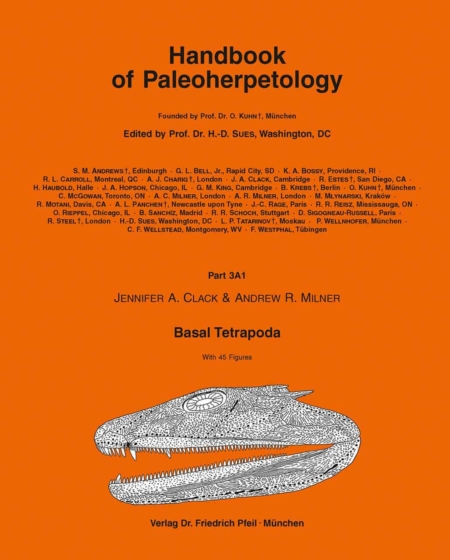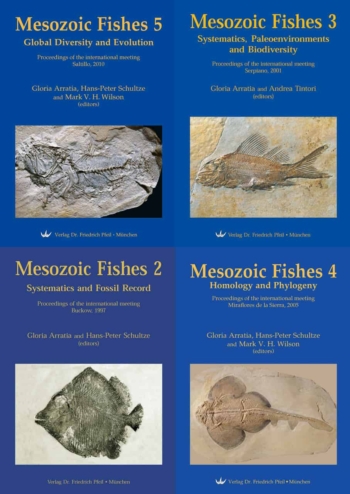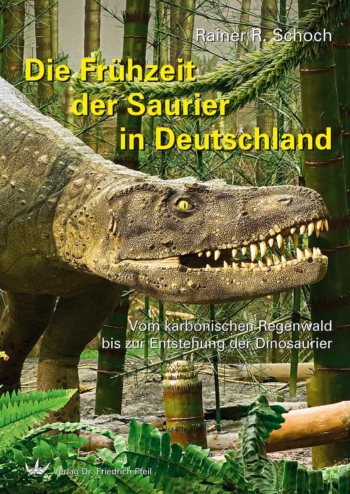Editorial Preface V
Institutional abbreviations
VIIAbbreviations and conventions used in figures VIII
Origin of tetrapods1Classification and relationships 1
The relatives of tetrapods 2
Morphology of the ‘fish’-tetrapod transformation 4
Ecology of the ‘fish’-tetrapod transformation5 Chronology of the ‘fish’-tetrapod transformation 7
Historical Overview 8
First descriptions (1851-1865) 8
Carboniferous tetrapod assemblages (1866-1910) 8
Evolutionary scenarios (1911-1930) 8
Devonian tetrapods and comprehensive classifications (1930-1966) 9
Improved preparation and diagnosis (1967-1980) 9
The information explosion (1981-present) 10
The next decades 11
Systematic paleontology 12
Tetrapodomorpha Ahlberg, 1991a 13
Givetian-Frasnian tetrapodomorphs 13
Frasnian tetrapodomorphs 13
Family Elginerpetidae Ahlberg, 1995 13
Elginerpeton Ahlberg, 1995 13
Obruchevichthys Vorobyeva, 1977 14
Famennian tetrapodomorphs 15
Family Acanthostegidae Jarvik, 1952 15
Acanthostega Jarvik, 1952 18
Family Ichthyostegidae Säve-Söderbergh, 1932 21
Ichthyostega Säve-Söderbergh, 1932 23
Ymeria Clack, Ahlberg, Blom & Finney 2012 27
Ichthyostegidae incertae sedis 28
Family undesignated 28
Metaxygnathus Campbell & Bell, 1977 28
Ventastega Ahlberg, Luksevics & Lebedev, 1994 29
Unnamed skull fragment from the Ketleri Formation of Latvia 29
Hynerpeton Daeschler et al., 1994 31
Densignathus Daeschler, 2000 32
Sinostega Zhu, Ahlberg, Zhao & Jia, 2002 32
Jakubsonia Lebedev, 2004 32
Family Tulerpetidae Lebedev & Coates, 1995 33
Tulerpeton Lebedev, 1984 35
Mississippian and Pennsylvanian stem-tetrapods 35
Family Whatcheeriidae Clack, 2002c 35
Pederpes Clack, 2002c 35
Whatcheeria Lombard & Bolt, 1995 36
Occidens Clack & Ahlberg, 2004 38
Ossinodus Warren & Turner, 2004 41
Family Crassigyrinidae Huene, 1948 42
Crassigyrinus Watson, 1929 42
Family Colosteidae Cope, 1875 44
Colosteus Cope, 1869 45
Greererpeton Romer, 1969 45
Pholidogaster Huxley, 1862 48
Deltaherpeton Bolt & Lombard 2010 48
Colosteidae incertae sedis 48
Ichthyerpeton Wright & Huxley, 1866 48
Not Colosteidae 49
Family Caerorhachidae Carroll, 1988 49
Caerorhachis Holmes & Carroll, 1977 49
Superfamily Baphetoidea Cope, 1875 sensu A. C. Milner & Lindsay, 1998 52
Eucritta Clack, 1998a 52
Family Baphetidae Cope, 1875 54
Subfamily Baphetinae Cope, 1875 54
Baphetes Owen, 1854 54
Subfamily Loxommatinae Lydekker, 1889 56
Loxomma Huxley, 1862 56
Megalocephalus Barkas, 1873 58
Kyrinion Clack, 2003a 60
Not Baphetidae 61
‘Loxomma’ 61
Family Spathicephalidae Beaumont 1977 61
Spathicephalus Watson, 1929 61
Stem-Tetrapoda incertae sedis 62
Doragnathus Smithson, 1980b 62
Westlothiana Smithson & Rolfe, 1990 62
Silvanerpeton Clack, 1994a 64
Eldeceeon Smithson, 1994 66
Casineria Paton, Smithson & Clack, 1999 66
Antlerpeton Thomson, Shubin & Poole, 1998 69
Sigournea Bolt & Lombard, 2006 70
Kirktonecta Clack, 2011 70
Material from the Tournaisian of southern Scotland and northern England 71
Material from the Tournaisian of Horton Bluff, Nova Scotia 71
Material from the Mississippian of Hancock County, Kentucky 72
Material from the Mississippian Pomquet Formation, Nova Scotia 74
Paleobiology and ecology of Carboniferous tetrapods 74
Paleobiogeography 76
Devonian76 Carboniferous 77
Literature cited 80
Index of taxa 91
HPH 3A1 • Basal Tetrapoda
2015. [in English] – X + 92 pp., 1 coloured and 44 black-and-white figures.
25.5 x 20.5 cm, Hardcover.
Series: Handbook of Paleoherpetology
60,00 €
plus shipping costs
The last two decades or so there have witnessed a renaissance of scientific interest in the origin of tetrapods, driven by spectacular discoveries of fish-like sarcopterygians with tetrapod characters and very primitive tetrapods. This research has revolutionized our understanding of the sequence of acquisition of key tetrapod features as well as the timing and circumstances of critical events during this major evolutionary transition. The new finds have not only established the existence of an unexpected diversity of Late Devonian stem tetrapods but are also beginning to fill in a major hiatus in the fossil record, informally known as “Romer’s Gap”, during which tetrapods made the transition from a primarily aquatic to a terrestrial mode of life. The foremost expert in the study of origin and early diversification of tetrapods, Professor Jennifer A. CLACK, and a leading expert on late Paleozoic non-amniote tetrapods, Dr. Andrew R. MILNER, present here a synopsis of our current knowledge of the anatomy and diversity of Late Devonian and Carboniferous (Mississippian-Pennsylvanian) stem tetrapods. The phylogenetic relationships of many of the taxa included in this review remain unresolved, and thus the title “basal Tetrapoda” was selected faute de mieux. We are well aware that most authors would extend the tetrapod stem-group much farther into fish-like sarcopterygians such as Eusthenopteron. In the absence of suitable formal taxonomic categories, “basal Tetrapoda” is used here in a less inclusive meaning – tetrapodomorph taxa with limbs and digits that cannot be assigned to more derived clades such as Temnospondyli and Amniota or their respective proximate sister taxa.
H.-D. SUES
You must be logged in to post a review.
"*" indicates required fields
Related products
We’re here for you
Verlag Dr. Friedrich Pfeil
Hauptstraße 12B
5232 Bergkirchen OT Günding – Germany
Tel.: +49 8131 61 46 590
Fax: +49 8131 61 46 591
E-Mail: info@pfeil-verlag.de
Contact
Tel.: +49 89 742827-0
Fax: +49 89 7242772
E-Mail: info@pfeil-verlag.de






Reviews
There are no reviews yet.